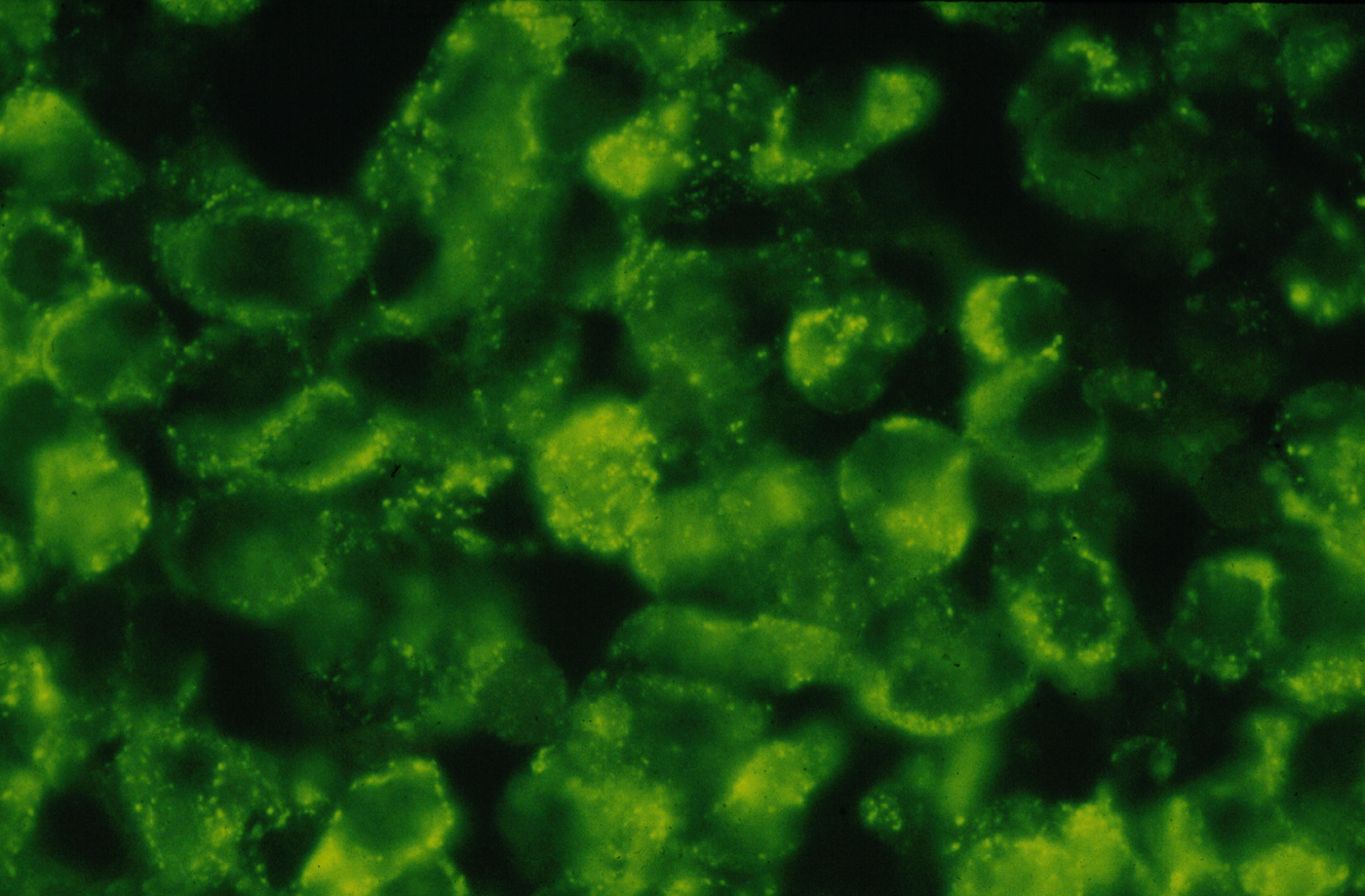FAQ on Dengue-Virus

1. What is Dengue and where does it occur?
Dengue is a disease that can be caused by the Dengue virus. It occurs in almost all tropical and subtropical regions, especially in Southeast Asia and South America. The main risk areas are not rural areas, but cities.
The infection can be accompanied by a febrile illness (Dengue). In less than one percent of infections, the course can be severe, with internal bleeding and circulatory failure.
For those travelling on business, Dengue is considered an occupational disease. In 2019 alone, Germany recorded the most travelers with Dengue virus infections across Europe. The number of reported cases now roughly equals the number of imported malaria cases.
Rising temperatures and increased travel and goods traffic also favour the spread of Dengue virus in the USA and Europe. In some Mediterranean regions Dengue occurs regularly, for example in Italy, Croatia, Spain and France.
2. How are Dengue-Viruses transmitted?
Dengue viruses can be transmitted through the bite of infected Aedes mosquitoes, especially Aedes aegypti and Aedes albopictus. These mosquitoes are most active during the day. When travelling to Dengue-endemic areas, wear long-sleeved clothing and use mosquito repellent. Help prevent the accumulation of standing water, as Aedes mosquitoes lay their eggs close to water.
3. What are the symptoms associated with Dengue?
Dengue patients may develop fever, headache, severe joint pain and a skin rash, especially on the upper body. In severe cases, bleeding, organ failure and a decrease in the number of blood platelets can occur. With good medical treatment, the majority of sufferers recover. If you suspect Dengue, be sure to contact a doctor!
4. How is dengue diagnosed?
Dengue is diagnosed by a combination of clinical assessment of symptoms and laboratory tests. First, doctors assess the patient's symptoms described in 3. The medical history helps to find out whether the patient has been in an endemic area and may have been at higher risk of infection there. To make a final diagnosis, blood samples are taken to detect the virus or antibodies to the virus using laboratory tests such as ELISA and PCR. This helps distinguish dengue from other similar diseases. Early diagnosis is crucial as it allows for quick medical attention and helps to prevent the spread of the disease in areas populated by tiger mosquitoes.
If you suspect dengue, please contact a doctor or clinic. Information on advice for doctors from the BNITM laboratory diagnostics can be found here.
5. What treatment is available?
There is still no causal therapy for Dengue. So far, only the symptoms can be treated: by hydration and painkillers such as paracetamol. Acetylsalicylic acid, such as in aspirin or ASA, should be avoided at all costs because of its anticoagulant effect. In more severe cases, hospitalisation is necessary and often also intensive medical monitoring, because the state of health of those affected can deteriorate very quickly.
6. Is there a vaccination against Dengue?
There are two live attenuated vaccines available that are licensed in some countries: Dengvaxia and Qdenga. The vaccination is primarily aimed at people who have already been infected with Dengue. They have a high risk of becoming severely ill in case of a new infection due to an excessive immune reaction. The reason for this is that there are four different Dengue virus serotypes.
The Ständige Impfkommission (STIKO) recommends Qdenga only for people (≥ 4 years of age) who have had a laboratory-confirmed dengue virus infection in the past:
- as a travel vaccination before travelling to dengue endemic areas with an increased risk of infection (e.g. for longer stays or current outbreaks) or
- for specific activities involving dengue viruses (e.g. in research facilities or laboratories) outside endemic areas.
Travellers should consult a doctor to clarify if they need to be vaccinated. Immunocompromised people and pregnant women are excluded from vaccination, as with all live vaccines.
Even those who have been vaccinated should continue to protect themselves from mosquitoes, because vaccination reduces the risk of severe courses, but does not necessarily protect against infection.
7. How can you protect yourself from Dengue?
The best prevention against Dengue is to protect yourself from mosquito bites. Wear long protective clothing, use effective mosquito repellents and avoid places with high mosquito activity. In endemic areas, help avoid mosquito breeding sites by avoiding standing water accumulations, for example in containers.
More Informationen:
- World Health Organization (WHO) - https://www.who.int/
- Centers for Disease Control and Prevention (CDC) - https://www.cdc.gov/
- Robert Koch-Institut (RKI) - https://www.rki.de/
Contact
- Prof. Dr Jonas Schmidt-Chanasit
- Head of Arbovirology/ Entomology Department
- phone: +49 171 212 7900, +49 40 285380 271
- email: schmidt-chanasit@bnitm.de
- Dr Anna Hein
- Public Relations
- phone: +49 40 285380-269
- email: presse@bnitm.de
- Julia Rauner
- Public Relations
- phone: +49 40 285380-264
- email: presse@bnitm.de
- The Laboratory diagnostics|Consultation for physicians
- Advice on the diagnostic procedure
- phone: +49 40 285380-211
- fax: +49 40 285380-252
- email: labordiagnostik@bnitm.de







